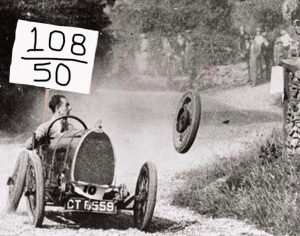
DEMOCRATS
REPUBLICANS
95%
5%

(D) J. Hickenlooper*
(R) Somebody
80%
20%


(D) M. Dougherty
(D) Jena Griswold
60%↑
40%↑


(D) Brianna Titone
(D) Jeff Bridges
(R) Kevin Grantham
40%
40%
30%

(D) Diana DeGette*
(R) Somebody
90%
2%

(D) Joe Neguse*
(R) Somebody
90%
2%

(R) Jeff Hurd*
(D) Somebody
80%
40%

(R) Lauren Boebert*
(D) Somebody
90%
10%

(R) Jeff Crank*
(D) Somebody
80%
20%

(D) Jason Crow*
(R) Somebody
90%
10%

(D) B. Pettersen*
(R) Somebody
90%
10%

(R) Gabe Evans*
(D) Manny Rutinel
(D) Yadira Caraveo
45%↓
40%↑
30%

DEMOCRATS
REPUBLICANS
80%
20%

DEMOCRATS
REPUBLICANS
95%
5%

(D) J. Hickenlooper*
(R) Somebody
80%
20%


(D) M. Dougherty
(D) Jena Griswold
60%↑
40%↑


(D) Brianna Titone
(D) Jeff Bridges
(R) Kevin Grantham
40%
40%
30%

(D) Diana DeGette*
(R) Somebody
90%
2%

(D) Joe Neguse*
(R) Somebody
90%
2%

(R) Jeff Hurd*
(D) Somebody
80%
40%

(R) Lauren Boebert*
(D) Somebody
90%
10%

(R) Jeff Crank*
(D) Somebody
80%
20%

(D) Jason Crow*
(R) Somebody
90%
10%

(D) B. Pettersen*
(R) Somebody
90%
10%

(R) Gabe Evans*
(D) Manny Rutinel
(D) Yadira Caraveo
45%↓
40%↑
30%

DEMOCRATS
REPUBLICANS
80%
20%

DEMOCRATS
REPUBLICANS
95%
5%
 July 30, 2024 12:04 PM UTC
July 30, 2024 12:04 PM UTC 2 Comments
2 Comments In the waning days of the 2024 legislative session in Colorado, both Democrats and Republicans
In the waning days of the 2024 legislative session in Colorado, both Democrats and Republicans 
 If either 50 or 108 pass in November, they will also automatically negate SB24-233. Caldara and the Independence Institute are more enthusiastic about Initiative 108, for reasons that don’t make logical sense considering their concerns about Initiative 50. Initiative 108 would require the state to reimburse local governments for any decrease in revenues resulting from property tax cuts and maintenance of the state education fund. This would be fine if the State Budget had a bunch of excess money sitting around. But it doesn’t — and that would mean MASSIVE cuts in places such as higher education funding.
If either 50 or 108 pass in November, they will also automatically negate SB24-233. Caldara and the Independence Institute are more enthusiastic about Initiative 108, for reasons that don’t make logical sense considering their concerns about Initiative 50. Initiative 108 would require the state to reimburse local governments for any decrease in revenues resulting from property tax cuts and maintenance of the state education fund. This would be fine if the State Budget had a bunch of excess money sitting around. But it doesn’t — and that would mean MASSIVE cuts in places such as higher education funding.
I'm hoping the Joint Budget Committee will clarify by addressing expected revenues under the current taxation rates AND under each of the proposals.
I think at least one of these initiatives will pass. With housing prices rising as they have, and remaining stubbornly high, and interest rates higher than they were a few years ago, and with homeowners insurance rates rising, we cannot afford higher property taxes.
Limiting the increase that can happen year-over-year is vital.
Colorado and its municipalities are going to have to figure out a way to deal with their revenue needs without depending on property tax hikes.